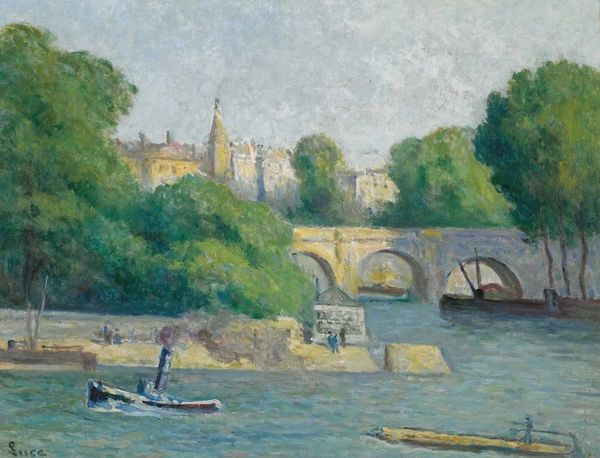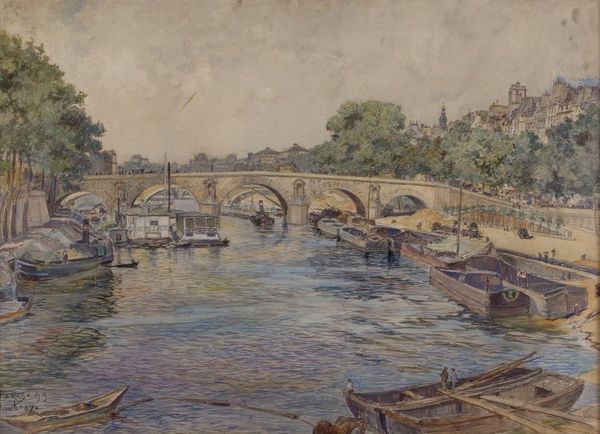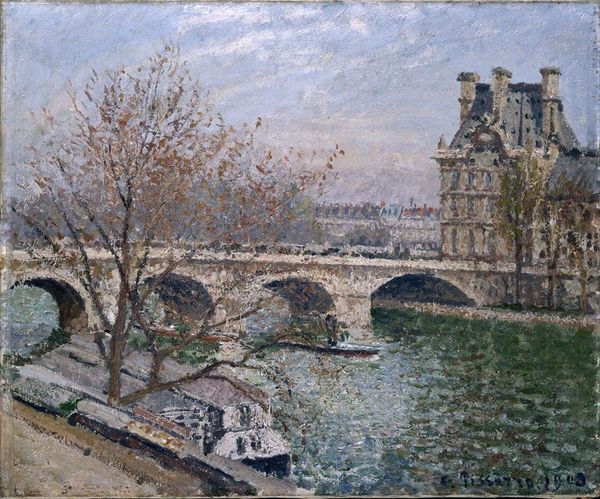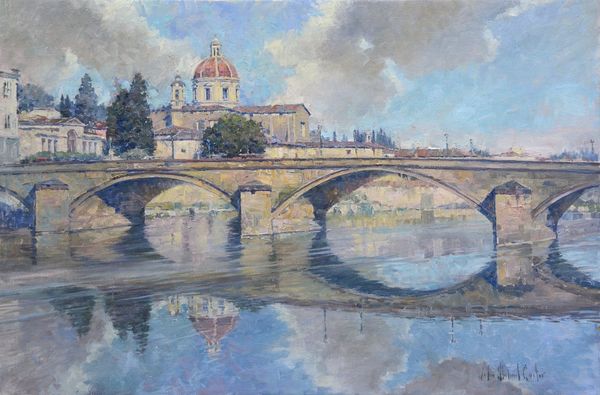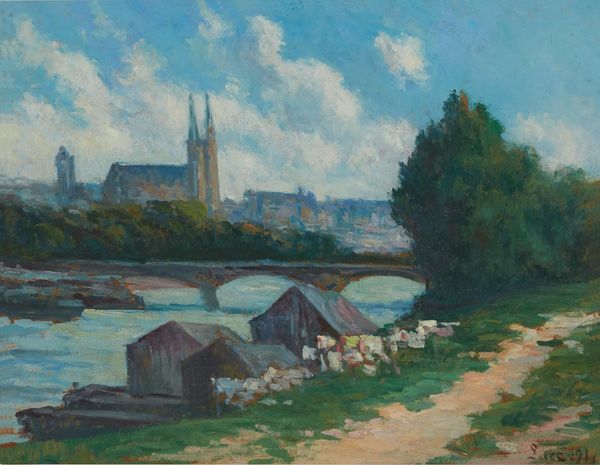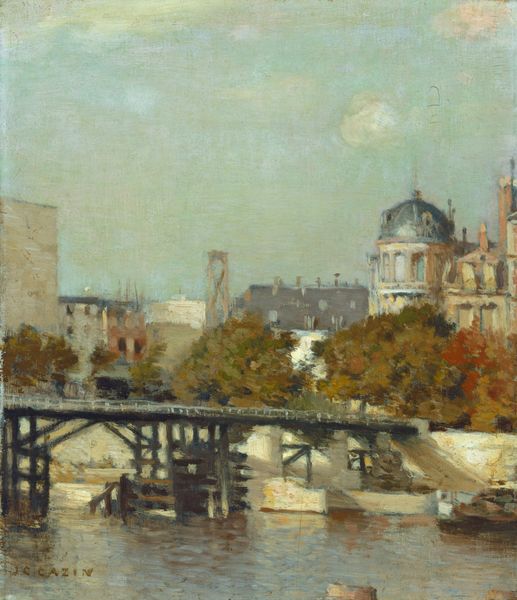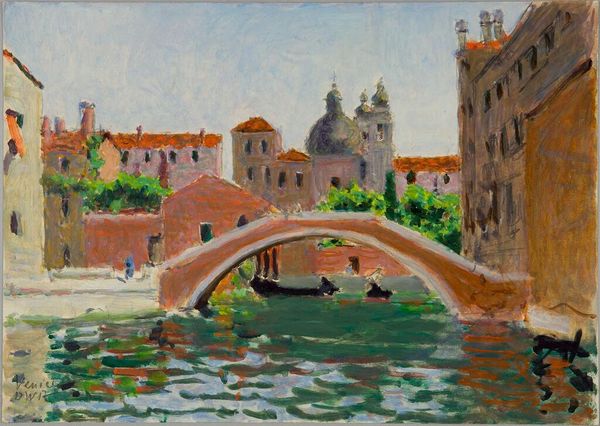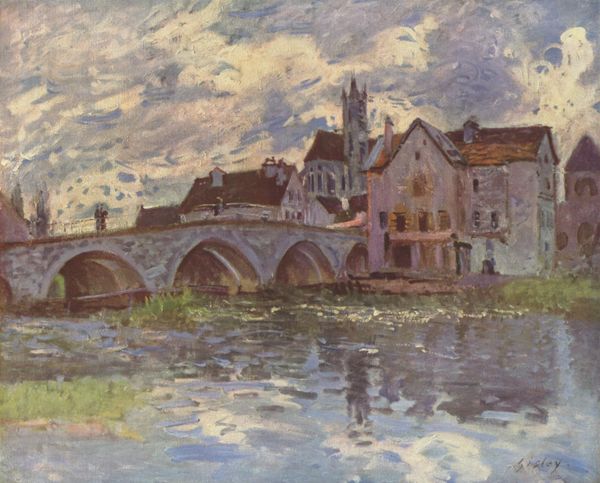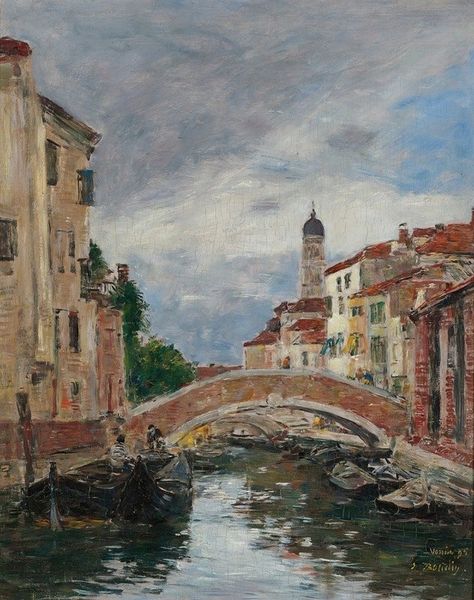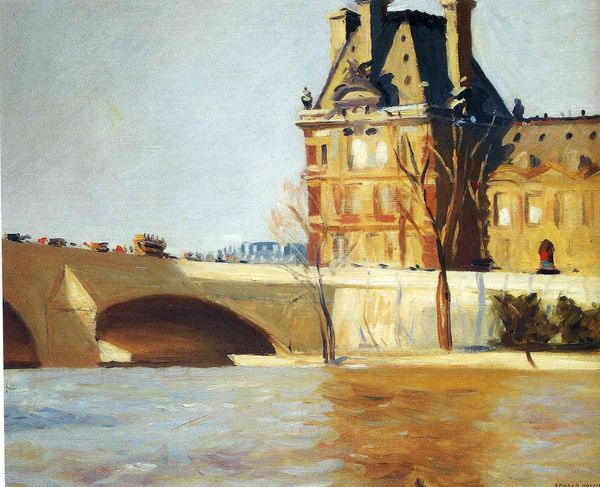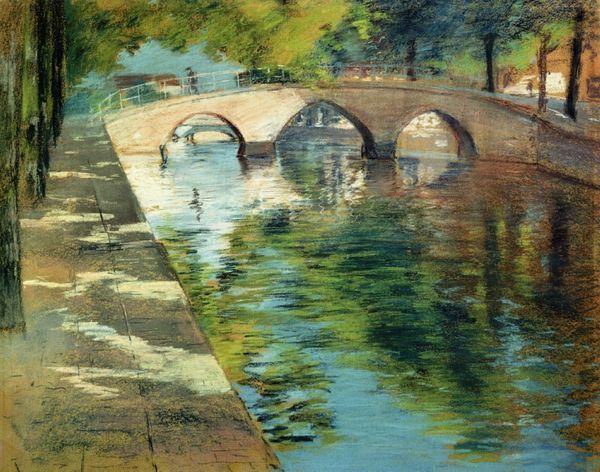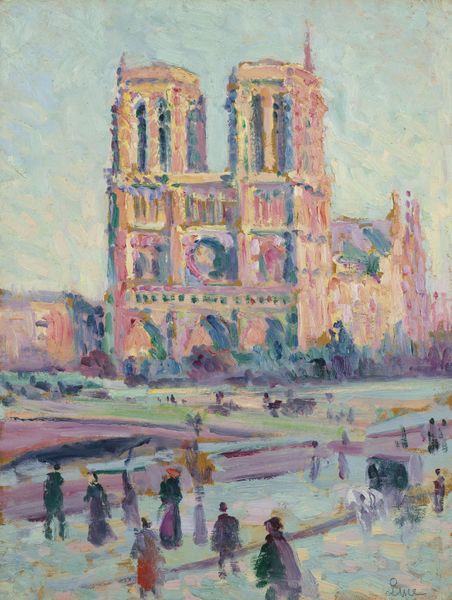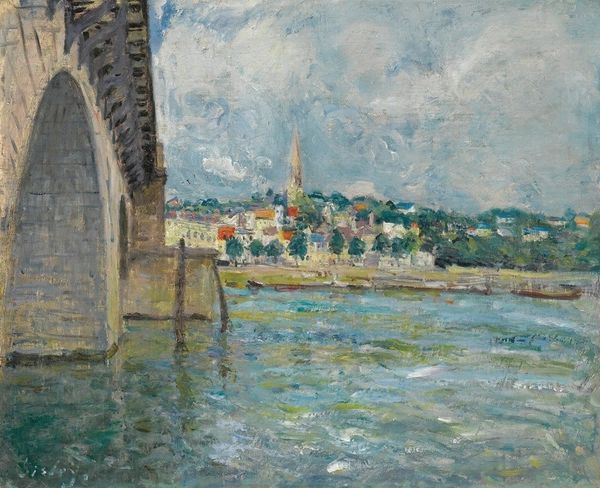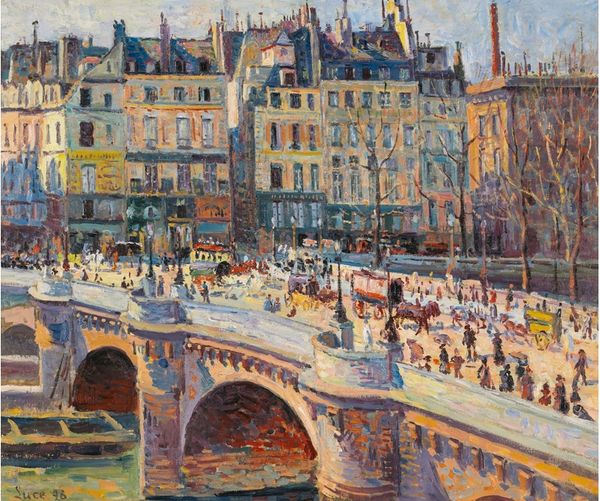
painting, plein-air, oil-paint
#
painting
#
impressionism
#
plein-air
#
oil-paint
#
landscape
#
impressionist landscape
#
oil painting
#
cityscape
#
genre-painting
#
modernism
#
realism
Copyright: Public domain
Curator: What strikes me immediately is the tranquility. Despite being a cityscape, there's a sense of peace radiating from the canvas. The cool tones of the water and sky are really soothing. Editor: We are looking at a work entitled "Le Pont Saint Michel, Paris," an oil on canvas painting very much in the Impressionist style by Lili Elbe. What is so crucial to remember is this painter's broader position relative to modernism and debates around trans identity, not only because it might shape the style, but because it helps position this artist in the modern era. Curator: Absolutely. And when we consider Elbe’s biography alongside this depiction of Paris, the city itself almost becomes a character – a space of freedom and possibility, perhaps. Do you find any parallels with queer theory ideas? Editor: Yes, I would agree that cities provided these opportunities to create counter-publics, these alternative modes of belonging which exist apart from state sanctioned identities, especially along lines of sexuality. This painting can contribute so much to those historical dialogues, beyond just its pure aesthetic value. But it does beg a different question, and it is one of reception: does it matter whether Elbe's paintings, such as this, be thought of, by viewers, through a transgender lens? Or are we merely forcing narratives that might simply not be there? Curator: I'd argue it's about expanding the conversation, not forcing a narrative. Considering identity and lived experience enriches our understanding of art, its production, and its reception. Plus, I love how the loose brushstrokes capture the play of light on the water. The impressionistic technique seems perfect for conveying a fleeting moment. Editor: I think the brushwork really tells the story, though, of impressionism more than Lili Elbe. What's remarkable to consider when faced with images like this is the larger forces that made it legible for audiences as *art*. You know, the critics, the marketplace... Curator: True. So, it is less that art *merely reflects lived* experience, and much more than it participates in a cultural dialog that shapes it, validates it, refuses it, etc. And it may allow that individual—the painter, in this case— to reach a different plane and become far bigger. A legend. Thanks for the walk, Editor. Editor: Absolutely, this really made me reflect upon my own methodology!
Comments
No comments
Be the first to comment and join the conversation on the ultimate creative platform.
